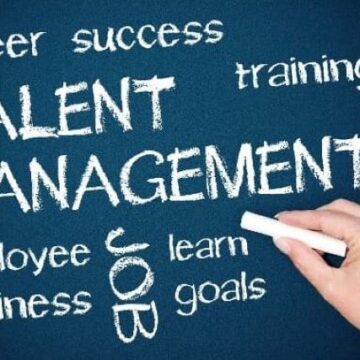
In today’s dynamic business environment, the importance of a versatile and robust skill set cannot be overstated. The human resources function, once relegated to administrative duties, has evolved into a strategic role that drives organizational success.
This guide is designed to help you cultivate a diverse skill set that keeps pace with industry trends and anticipates the future needs of your organization. You’ll gain insights into essential competencies, from recruitment and talent management to HR analytics and change management. Let’s embark on this journey to enhance your HR capabilities and make an impact in your organization.
Related articles:
5 Tips to Manage Careers and Mobility in Your Company
5 Tips to Promote the Professional Growth of Your Employees
Defining Skill Set
A “skill set” in the context of human resources refers to the unique mix of skills, abilities, and knowledge that an individual possesses. These can include hard skills, which are specific, teachable abilities such as proficiency in a certain software or knowledge of labor laws, as well as soft skills, such as communication, problem-solving, and leadership. The combination of these skills contributes to one’s ability to perform their job effectively and add value to the organization. In the HR realm, a diverse skill set is essential given the variety of responsibilities the role encompasses, from shaping company culture and managing employee relations to strategic planning and legal compliance.
What is the importance of having a diverse skill set in the workplace?
A diverse skill set in the workplace is crucial for several reasons. Firstly, it fosters adaptability, allowing individuals to pivot and meet changing demands or unexpected challenges. Employees with a broad range of skills can fill various roles as needed, enhancing operational efficiency. Moreover, a diverse skillset promotes innovation.
Different skills and perspectives can generate fresh ideas, contributing to problem-solving and the development of new strategies or products. In addition, employees with a comprehensive skillset are often more engaged and motivated, as they can utilize and develop their varied abilities, leading to increased job satisfaction and productivity. Therefore, cultivating a diverse skillset is a strategic move that benefits both the individual and the organization.
How can I identify my own skill set?
Identifying your own skill set involves a thorough process of self-assessment and reflection. Start by carefully considering your education and the specific skills you have acquired through your studies. Reflect on the various courses, projects, and assignments that have allowed you to develop a diverse range of competencies.
Additionally, take into account your work history, examining the different roles and projects you have been involved in. Think about the specific tasks and responsibilities you have undertaken and the skills you have gained through these experiences.
Furthermore, don’t overlook the value of your hobbies and volunteer work. These activities can contribute to your skill set in unique ways, highlighting your interests, dedication, and ability to work well with others. Consider the transferable skills you have gained through these pursuits and how they can be applied to different areas of your life and career.
While self-assessment is crucial, it is also helpful to seek feedback from colleagues, mentors, or others who can provide an outside perspective. Their insights and observations can offer valuable perspectives on your strengths and areas for improvement.
Organizing your skill sets
To effectively organize your skills, consider categorizing them into hard and soft skills. Hard skills are typically technical or specialized abilities that are specific to a certain field or industry. Examples of hard skills include programming, data analysis, or graphic design. On the other hand, soft skills encompass interpersonal, communication, and leadership traits that are valuable in any professional setting. Examples of soft skills include teamwork, problem-solving, or effective communication.
Creating separate lists for each category can provide a comprehensive overview of your skill set and make it easier to showcase your strengths to potential employers or colleagues. By organizing your skills in this way, you can highlight your expertise in both technical areas and interpersonal abilities, presenting a well-rounded profile that demonstrates your versatility and potential contributions.
Remember, your skill set is not fixed or static; it is something that evolves and develops throughout your life and career. Embrace opportunities for growth and continuously seek ways to expand and refine your skill set.
How can I improve and expand my current skill set?
Continuous Learning
To improve and expand your current skill set, one of the most effective methods is engaging in continuous learning. This can involve taking up new courses like learning Japanese, attending workshops or seminars, and pursuing further education in your field of interest. Platforms like Coursera, Udemy, LinkedIn Learning or DIY’s How to Draw program offer a wide range of online courses that can help you acquire new hard skills or improve your existing ones.
Networking and Collaboration
Another effective way to develop your skills is by networking and collaborating with others in your field. This approach not only provides opportunities to learn from the experiences and expertise of others, but it can also expose you to new perspectives and ideas that can enhance your professional growth.
Attend industry conferences, join professional organizations, or participate in online forums to connect with like-minded professionals. While networking make sure to share your contact information or business card with your industry’s top HR experts, and with the help of a digital business card you can easily share your contact details without much hassle.
Self-Reflection and Feedback
Finally, regular self-reflection and seeking feedback from others can be an invaluable tool for skill improvement. By reflecting on your performance, you can identify areas of weakness and create targeted strategies for improvement. Similarly, feedback from colleagues, mentors, or supervisors can provide an outside perspective on your strengths and areas for improvement, allowing you to make strategic decisions about your professional development.
Frequently Asked Questions About Skill Set
How frequently should you update your skill set?
The frequency with which you update your skill set can vary depending on your career, industry, and personal goals. However, as a general rule, aim to learn a new skill or improve an existing one at least every six months. In rapidly evolving fields like technology or digital marketing, you may need to update your skills more frequently. Remember, continuous learning and professional development are key to staying competitive in today’s ever-changing job market.
How can developing new skills benefit your personal and professional growth?
Developing new skills can significantly benefit both your personal and professional growth. From a professional standpoint, acquiring new skills or enhancing existing ones can increase your competitiveness in the job market, open up new career opportunities, and potentially lead to higher earnings. On a personal level, learning new skills can boost self-confidence and foster a sense of achievement. It encourages lifelong learning and adaptability, qualities that are valuable in both personal and professional life. Furthermore, it can also provide a creative outlet and contribute to overall wellbeing.
What are the potential challenges of diversifying your skill set?
Diversifying your skill set can come with several challenges. One of the primary obstacles is the time commitment required to learn and master new skills. Pursuing multiple skills simultaneously can also lead to a lack of focus and, consequently, proficiency in any one area. Furthermore, there may be financial costs related to training, coursework, or certifications. It’s important to strategically select which skills to acquire based on your professional goals and the demands of your industry, rather than attempting to learn everything at once.
How can networking and collaboration contribute to expanding your skill set?
Networking and collaboration play a crucial role in expanding your skill set. By networking, you expose yourself to a diverse range of perspectives, ideas, and experiences. This can provide insights into skills you may need to develop to advance in your field. Collaboration, on the other hand, allows you to learn directly from others.
Working on a team project, for instance, lets you observe how others apply their skills to solve problems or accomplish tasks. This can be a powerful learning experience, providing opportunities to acquire new skills or enhance existing ones in real-world contexts. Furthermore, networking and collaboration can open doors to mentorship opportunities and professional development resources.
What role does adaptability play in maintaining a relevant skill set in a rapidly changing job market?
Adaptability is paramount in maintaining a relevant skill set in a rapidly changing job market. The pace of technological change and globalization means that new skills may become necessary in a very short time. Those who can adapt to these changes, learn quickly, and apply new knowledge effectively will have a significant advantage. Adaptability includes not just the ability to learn new skills, but also a mindset that is open to change and comfortable with uncertainty. It involves being proactive in identifying the skills you need to develop to stay competitive and being willing to step out of your comfort zone to acquire them.
Furthermore, adaptability encompasses resilience and the ability to bounce back from failures or setbacks during the learning process. Thus, adaptability ensures the continual evolution and updating of one’s skill set, aligning with emerging trends and demands in the job market.
How can employers recognize and assess the value of a diverse skill set in potential candidates?
Employers can recognize and assess the value of a diverse skill set in potential candidates through several strategies. Firstly, they can utilize structured interviews focusing on behavioral and situational questions that give candidates the opportunity to showcase their skills in a variety of contexts. Secondly, employers can implement skills assessments or tests that directly measure a candidate’s abilities in key areas.
Additionally, evaluating a candidate’s past work experience, projects, and their role within those can give an understanding of their range of skills. Looking beyond just the technical qualifications and considering soft skills, like communication, problem-solving, and teamwork abilities, can also reveal a candidate’s diversity in skills.
Moreover, references from previous employers or colleagues can provide insight into a candidate’s capabilities and competencies in a real-world setting. Ultimately, the combination of these methods can help employers recognize and assess the value of a diverse skill set in potential candidates.
Conclusion
In conclusion, enhancing your current skill set is a multi-faceted process that involves continuous learning, networking and collaboration, and regular self-reflection with feedback. By incorporating these strategies into your personal development plan, you can actively work towards expanding your skills and abilities. Remember, growth is a continuous journey, and each step you take in learning and connecting with others brings you closer to achieving your professional goals. Keep pushing boundaries, stay curious, and embrace the continuous journey of professional development.




 (1)-666x380.jpg)